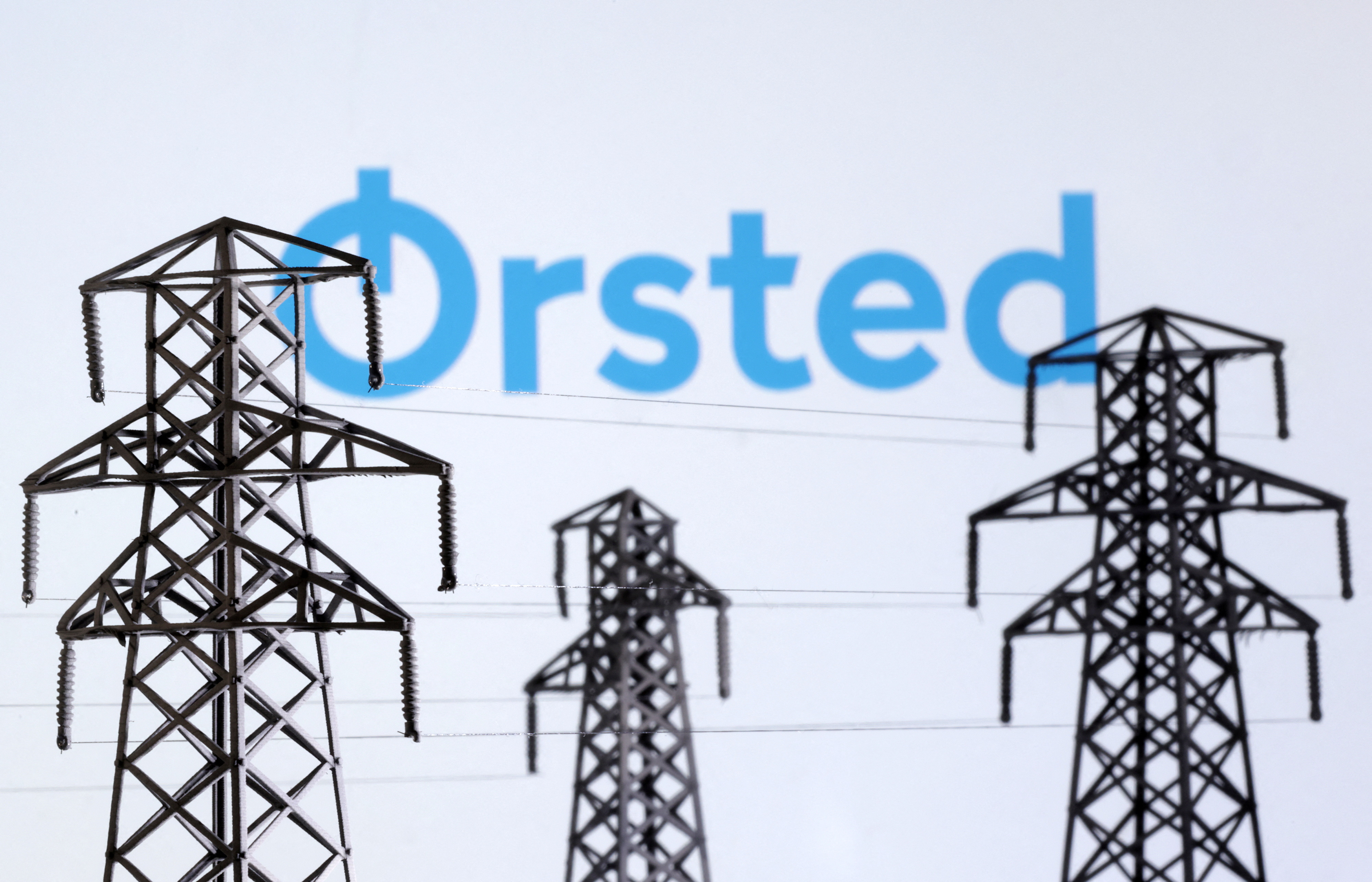[ad_1]

Electric power transmission pylon miniatures and Orsted logo are seen in this illustration taken, December 9, 2022. REUTERS/Dado Ruvic/Illustration/File Photo
COPENHAGEN, Aug 10 (Reuters) – Denmark’s Orsted (ORSTED.CO), the world’s No. 1 offshore wind farm developer, on Thursday reported second-quarter operating profit below expectations and confirmed its full-year guidance.
Second-quarter earnings before interest, tax, depreciation and amortisation (EBITDA) excluding new partnerships fell 8% from a year earlier to 3.32 billion Danish crowns ($489.56 million), compared with the 3.85 billion expected by analysts in a Refinitiv poll.
Orsted kept its 2023 forecast for EBITDA excluding new partnerships unchanged at between 20 billion and 23 billion crowns.
“However, compared to the guidance provided in our annual report for 2022, we now expect higher earnings in Offshore than initially announced,” Chief Executive Mads Nipper said in a statement.
($1 = 6.7816 Danish crowns)
Reporting by Jacob Gronholt-Pedersen, editing by Terje Solsvik
Our Standards: The Thomson Reuters Trust Principles.
[ad_2]
Source link
